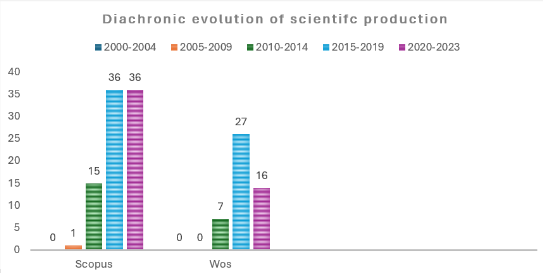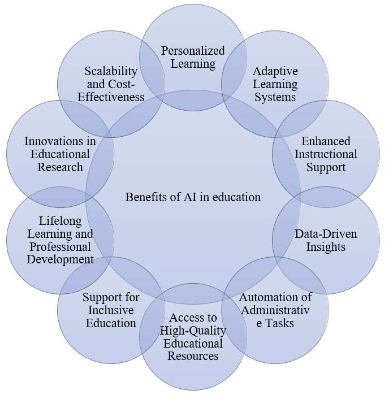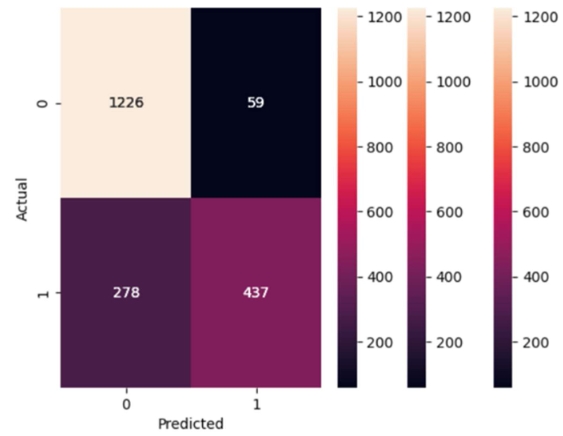Assessment for employability: Is synoptic assessment the answer?
Abstract
The production of job-ready graduates remains one of the key requests of the business community. The purpose of this paper is to re-examine the importance of assessment in developing employability skills and in making graduates more employable. One criticism often levied at higher education institutions is that students understand ideas in subject context but cannot transfer that knowledge into a holistic business context. As such, they have silo ‘mentality’; to be successful in the modern complex working and business environment, they need to understand and command multiplicity. As a conceptual paper, this article seeks to discuss the importance and relevance of assessment and its links to employability. The paper provides a case for the inclusion of synoptic assessment as a tool for developing and demonstrating employability skills. The article emphasises the importance of employability and surrounding issues. The paper provides originality through linking the concepts of education and assessment with the end goals of job readiness and employability. This paper argues for a new approach to assessment that is employability-driven.
References
[1]Constantinou F. What is synoptic assessment? Defining and operationalising an as yet non-mainstream assessment concept. Assessment in Education: Principles, Policy & Practice. 2020; 27(6): 670-686. doi: 10.1080/0969594x.2020.1841734
[2]Calma A. Fixing holes where the rain gets in. Associate, ed. Journal of International Education in Business. 2013; 6(1): 35-50. doi: 10.1108/18363261311314944
[3]Lang R, McNaught K. Reflective practice in a capstone business internship subject. Associate, ed. Journal of International Education in Business. 2013; 6(1): 7-21. doi: 10.1108/18363261311314926
[4]WEF. The future of jobs: Employment, Skills and Workforce Strategy for the Fourth Industrial Revolution. Available online: https://www3.weforum.org/docs/WEF_Future_of_Jobs.pdf (accessed on 2 March 2024).
[5]Quality Assurance Agency (QAA). Code of Practice for the assurance of academic quality and standards in higher education: Section 6: Assessment of students. Available online: https://dera.ioe.ac.uk/id/eprint/9713/2/COP_AOS.pdf (accessed on 2 January 2024).
[6]Leathwood C. Assessment policy and practice in higher education: purpose, standards and equity. Assessment & Evaluation in Higher Education. 2005; 30(3): 307-324. doi: 10.1080/02602930500063876
[7]Fry H, Ketteridge S, Marshall S. A Handbook for Teaching and Learning in Higher Education, 2nd ed. Routledge; 2003.
[8]Burkill S, Dyer SR, Stone M. Lecturing in higher education in further education settings. Journal of Further and Higher Education. 2008; 32(4): 321-331. doi: 10.1080/03098770802392915
[9]Taras M. Assessment for learning: sectarian divisions of terminology and concepts. Journal of Further and Higher Education. 2008; 32(4): 389-397. doi: 10.1080/03098770802395892
[10]Ghaicha A. Theoretical framework for educational assessment: A synoptic review. Journal of Education and Practice. 2016; 7(24): 212-231.
[11]Hargreaves G. An Introduction to Assessment. The Higher Education Academy HE in FE: Teaching and learning FIAT Consultancy Ltd. Available online: http://www.palatine.ac.uk/740.pdf (accessed on 7 March 2024).
[12]Taylor C. The assessment of work-based learning in Foundation Degrees. Available online: http://www/escalate.ac.uk/1151 (accessed on 2 March 2024).
[13]Taras M. Summative assessment: the missing link for formative assessment. Journal of Further and Higher Education. 2009; 33(1): 57-69. doi: 10.1080/03098770802638671
[14]Armitage A, Bryant R, Dunnill R, et al. Teaching and Training in Post-compulsory Education. Bucks OU Press; 1999.
[15]Steed A. The Flipped Classroom. Teaching Business and Economics. 2012; 16(3): 9-11.
[16]Biggs JB. Teaching for Quality Learning at University, 2nd ed. Bucks OU Press; 2003.
[17]Southall J, Wason H. Evaluating the use of synoptic assessment to engage and develop lower level higher education students within a further education setting. Practitioner Research in Higher Education. 2016; 10(1): 192-202
[18]Ramsden P. Learning to Teach in Higher Education. Routledge; 1992.
[19]Waterfield J, West B. Inclusive Assessment in Higher Education: A Resource for Change. University of Plymouth; 2006.
[20]Glossary of Educational Reform. Capstone Project. Available online: https://www.edglossary.org/capstone-project/ (accessed on 7 March 2024).
[21]Minton D. Teaching Skills in Further & Adult Education. Macmillan Education UK; 1991. doi: 10.1007/978-1-349-12278-3
[22]Petty G. Teaching Today, 2nd ed. Cheltenham Stanley Thornes; 1998.
[23]Reece I, Walter S. Teaching, training and learning: A practical guide, 4th ed. Sunderland Business Education; 2000.
[24]Bennis W, O’Toole J. How business schools lost their way. Available online: https://hbr.org/2005/05/how-business-schools-lost-their-way (accessed on 2 January 2024).
[25]Gallagher K. Skills Development for Business and Management Students: Study and Employability. OUP; 2013.
[26]Stinson JE, Milter RG. Problem‐based learning in business education: Curriculum design and implementation issues. New Directions for Teaching and Learning. 1996; 1996(68): 33-42. doi: 10.1002/tl.37219966807
[27]Tochon FV. When authentic experiences are ‘enminded’ into disciplinary genres; crossing biographic and situated knowledge. Learning and Instruction. 2000; 10(4): 331-359.
[28]Wang J, Ayres H, Huyton J. Job Ready Graduates: A Tourism Industry Perspective. Journal of Hospitality and Tourism Management. 2009; 16(1): 62-72. doi: 10.1375/jhtm.16.1.62
[29]Graduate Prospects. Applying for Jobs: What Skills do Employers want. Available online: http://www.prospects.ac.uk/applying_for_jobs_what_skills_do_employers_want.htm (accessed on 7 March 2024).
[30]Weber JW, Englehart SW. Enhancing business education through integrated curriculum delivery. Journal of Management Development. 2011; 30(6): 558-568. doi: 10.1108/02621711111135161
[31]Collins A. Generalizing from Situated Knowledge to Robust Understanding. Educational Researcher; 1990. pp. 89-99.
Copyright (c) 2024 Alan Johnston, Lyn Johnston

This work is licensed under a Creative Commons Attribution 4.0 International License.









